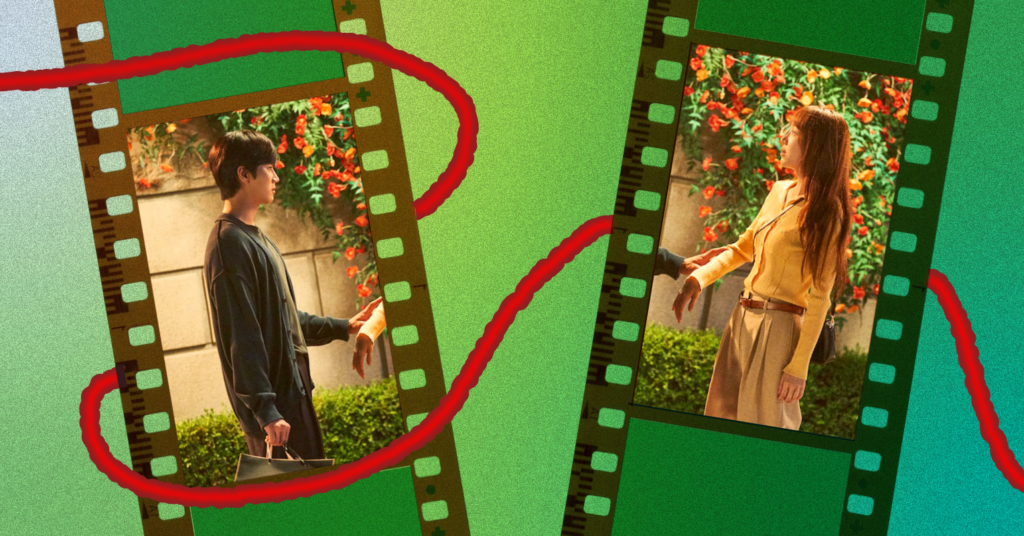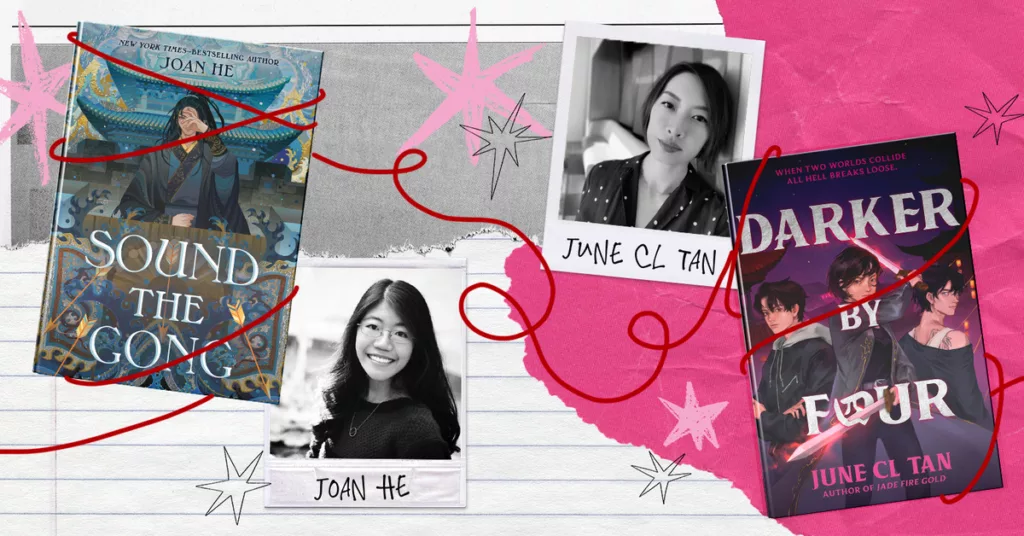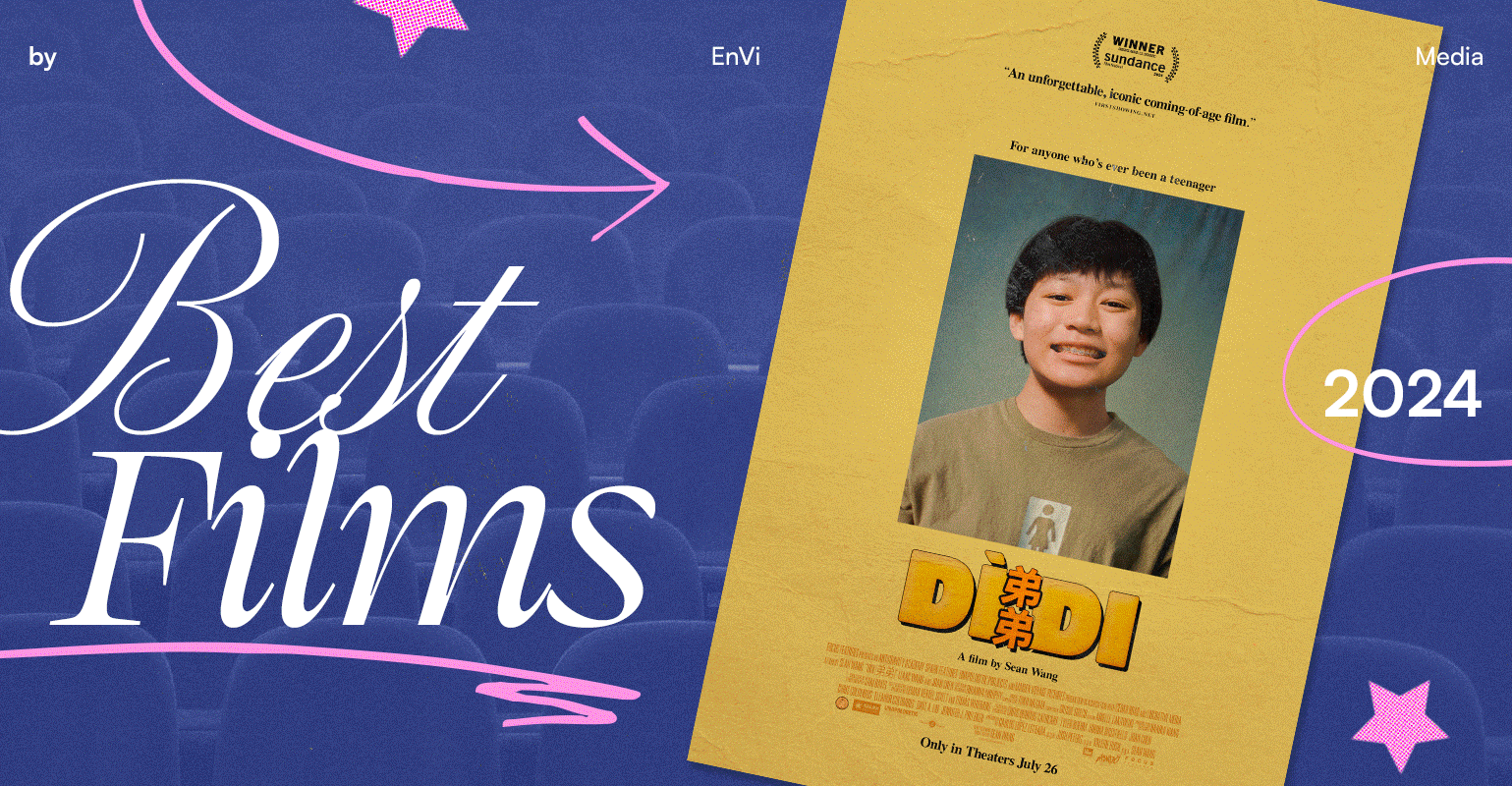A Closer Look at the Past Lives Lovers Tropes in East Asian Media

Writer’s Note: This article contains spoilers for See You In My 19th Life, Destined With You, Tomorrow, and Your Name.
Content Warning: This article discusses suicide and trauma.
For centuries, the concept of destined lovers has been regularly displayed in East Asian media. Whether it’s sneaking forbidden glances or a perfectly aligned union, mystical love stories from the past still make their way to the present. An innate feeling and yearning to be loved naturally occurs among everyone. Therefore, it’s no wonder romance dramas have found great popularity across Asia and throughout the world.
EnVi is diving deep into the tropes of past-life lovers and reincarnation that have become a hallmark of many drama series in East Asia. The beliefs of reincarnation and past lives have deep roots in Asian religion and culture. Featuring popular movies and dramas from Japan to South Korea, along with pieces of history and psychology, prepare to take the plunge into the past (and present) as we discuss these tropes and their appeal.
The Red Cords of Yue Lao

It’s important to examine the origins of fated connections in East Asia. According to Dr. Xiaohuan Zhao, a professor of Chinese literary and theater studies at the University of Australia, one of the earliest accounts dates back to the Tang Dynasty, China, with the story The Old Man in the Moonlight.
“The story appears under the title of Engagement Shop in the More Accounts of the Mysterious and Anomalous, a ninth-century collection of short stories written by Li Fuyan (775–833), a writer and scholar from the late Tang dynasty,” Dr. Zhao said in an email interview with EnVi.
This old man under the moon is known as Yue Lao, the god of love and marriage. He uses a red silk cord to bind the fates of two people destined to be together and, more known in China, to wed. He is said to carry a Book of Marriage, in which the names of people who are meant to be together were written. He then uses his red cords to tie the ankles of future couples. The Red String of Fate derives from this tale in Chinese mythology.
The legend that first mentioned Yue Lao takes place during the Tang dynasty and follows Wei Gu, a young man who stumbles upon him sitting under the moonlight.
The Red String of Fate Meets the Rest of East Asia
According to popular belief, during the reign of the Tang Dynasty and through the Silk Road, “this legendary story, together with other Tang dynasty tales, spread to the Korean peninsula and Japan,” said Dr. Zhao.
Following this natural exportation, Korea and Japan adapted these tales into their own, though the underlying plots from the original Chinese tales remain the same. A version you may have heard is Japan’s version of The Red String of Fate, which has been quite popular around the globe. In this version, the red string is tied around the woman’s pinky and the man’s thumb, as opposed to the ankles.
No matter how tangled or twisted the string may get, the couple will stay connected. Dr. Zhao also noted that it is believed by Buddhists this red string can connect people through lifetimes, further illustrating the idea of “soulmates.”
This magical notion of intertwined fates also plays a big role in romance films and dramas.The Japanese animated film Your Name (2016) gained popularity for its use of this concept. The main characters, Taki Tachibana and Mitsuha Miyamizu, live three years apart in different parts of Tokyo — Miyamizu three years in the past and Tachibana three years in the future. An odd fate ties their lives together when Miyamizu makes a wish to be a boy in Tokyo and Tachibana wishes to be a girl in a rural town. Without knowing (for a while), the two switch bodies throughout. When they wake up the next day, it’s as though it was all a dream and they forget about each other.
The film centers the feeling of yearning for deeper connections. As their lives further entangle, a big event tears their realities apart. Easter eggs of the red string are scattered throughout the film — from Miyamizu’s shrine rituals to her hair ribbon further connecting the two when she meets Tachibana as a stranger in her time and gives it to him.
Your Name is a perfect example of what it may be like to be connected by an invisible string. By the end, the two may not remember the times they shared but something about the other felt familiar, further connecting them once again.
Subtle Destined Connections
Critically acclaimed film Past Lives (2023) by Celine Song popularized the Korean Buddhist concept of “inyun.” According to Dr. Lisa Jeon, an adjunct professor of linguistics at the University of North Texas, “[Inyun] can range from four different meanings: the ties between two people over the course of their lives; fate, destiny, or a predestined relationship; a karmic and dharmic [moral order] connection; the consequences of cause and effect. It’s not easy to pin down an English counterpart because the word has so many nuances,” she writes in a BBC article about Past Lives.

When the two main characters, Nora (Greta Lee) and Hae-Sung (Teo Yoo), meet again after years apart, the what-ifs and old feelings between them resurface. Ultimately, the two never get together in the film, as Nora was married and already content with her life. Inyun becomes entangled with the missed connections and what-ifs that float around Nora and Hae-Sung. “It takes 8,000 layers over 8,000 lifetimes for a fated couple to get married,” Nora tells her now husband, Arthur, in the film. In the case for her and Hae-Sung, they had both believed in the potential fate that brought them together in this life, except there were not enough layers of inyun to keep them together.
While there are no magical elements in the film, the appeal comes from how close to reality the characters’ lives are — going through seasons of interpersonal relationships while moving through life and changes. There is a sense of comfort and heartbreak in a film that portrays something mundane yet epic in many people’s lives. Past Lives opened a door connecting the western world to an ancient idea for love and fate.
While the Western world is only now catching up to this traditional belief of inyun, it has been a subtle detail incorporated throughout many Korean dramas (K-dramas) dabbling in soulmate tropes as outlined throughout this article. See You in my 19th Life, a Webtoon turned K-drama all about reincarnation, has a few moments of inyun. The main character Ban Ji-Eum (Shin Hae-Sun) can remember all of her past lives due to a curse she inflicted upon herself in her first life. She later finds out the people she crossed paths with in her first life reincarnated into the same family and social group in her 18th life. After passing away prematurely in her previous life and reincarnating into her 19th life, she uncovers the truth behind her “cursed” abilities.
Alluding back to Nora’s narration in Past Lives, she mentioned, “It’s an inyun if two strangers even walk by each other on the street, and their clothes accidentally brush. Because it means there must have been something between them in their past lives.” Nora’s explanation can connect to a specific moment when Yoon Cho-Won (Ha Yoon-Kyung), Ban’s past-life sister, and their mutual friend Ha Do-Yoon’s (Ahn Dong-Goo) inyun first sparked.
While the two didn’t know each other in their past life, a simple moment of walking past each other as their robes brushed slightly against the other was enough to bind their fates together. After a seemingly unrequited love from Yoon’s side and a silent yearning from Ha in their current lives, they both come together and make their relationship official in the end.
Getting it Right in the Next Life
“If there is a next life, let us be happy,” weeped Jang Shin-Yu’s (Rowoon) past incarnation in Destined with You as he sat face to face with his dying love Lee Hong-Jo’s (Jo Bo-Ah) past incarnation. Death. Oftentimes in K-dramas, a strong exchange of a promise is said before death — a promise that guarantees a next life for the then ill-fated couples. This is the case for the main characters in Destined with You. Betrayal separates the two lovers, as one or the other departs abruptly before their story has a chance to continue.
Cold lawyer Jang Shin-Yu and eccentric civil servant Lee Hong-Jo cross paths when Lee gets the job of demolishing Jang’s rundown shrine. Later revealed in a twisted series of events, the shrine was a tangible place where their past incarnations, Mu-Jin and Aeng-Cho, often met and where Lee grew up. In that past life, they were childhood sweethearts, meeting in open fields where the gap in their class status didn’t matter. They meet their sudden end, as Aeng-Cho was a shaman being hunted by the government. Mu-Jin was employed as one of the officials to seize her. Whoever killed her would have a generational curse inflicted upon their family. As the people hunting her down didn’t care for her life and made plans not to catch the curse, Mu-Jin selflessly takes on the burden in an attempt to humanize her death. It may not have worked out for them in the past, but in the end, and in another life, they got their second chance. Not only did they break the curse, their love story was finally able to start fresh.
Severed Ties
It isn’t a K-drama without the stakes of losing a love interest. While most romance K-dramas lean towards feel-good happy endings, there are few that deviate and show more tragic endings. Some series have taken an interesting approach on imagining “severing” the red string of fate between two people.
Tomorrow, another Webtoon turned K-drama, is about grim reapers from Jumadeung, an organization of people guiding souls to the afterlife who save people from suicide. A team of reapers led by Koo Ryeon (Kim Hee-Sun) are tasked with this mission. Koo’s innate power to save people reflects from her past — saving people who are in a similar position as her past self. Due to the spreading of rumors about her, she took her life to save her husband Park Joong-Gil (Lee Soo-Hyuk), who later became the head of the management team at Jumadeung, from further falling into a darkness that fueled him with rage. Due to the pain Park felt over his love’s death, it became a grudge that had leaked and stayed with him throughout his next and final life before becoming a reaper.
After being saved from her personal hell and recruited to work at Jumadeung, Koo finds out that taking one’s own life completely severs the red threads of fate, or inyun, between all the prominent people connected in their past lives. She wishes for no one to suffer the same fate she had gone through. If the red thread is left intact, they will continue to meet that person — or people — again, no matter how many times they reincarnate.
While the inyun and threads between Koo and Park had been forever disconnected, the hope of saving others and keeping their threads of fate connected to their loved ones is what continues to fuel her work.
Writer’s Note: If you or a loved one are suffering from mental health issues such as depression, it is not recommended to watch the K-drama Tomorrow. For more resources provided by the Netflix series, please visit www.wannatalkaboutit.com.
The Appeal of Connections Lasting Throughout Time
On another note, Asian dramas and American television series alike have long served as an escape from reality for those who consume it. A sense of comfort and hope can arise from believing in the potential of a love that lasts throughout lifetimes. Dr. Pamela Rutledge, a psychologist with a specialization in media and technology, told EnVi via email. “East or west, stories that show love lasting more than a single lifetime and souls reuniting are appealing, giving hope that relationships we value, whether through death or breakup, are not really lost. Hope is a positive emotion and positive emotions have many benefits, from optimism to increasing resilience.”
The appeal of these tropes comes from a universal desire for connection and yearning for a love that lasts. Dr. Rutledge goes on to say, “Humans have an innate need to feel social connection. It is essential to our emotional and physical well-being. Watching romance [shows] can be fulfilling and create hope. Even when watching stories from other cultures, it’s surprisingly easy to connect with the emotions of yearning and love.”
While watching any kind of TV series can provide a huge sense of comfort, beware of self-indulging and the impacts that may arise from binge watching. Dr. Rutledge has some tips for healthy consumption.
Tips on How To Have a Healthy Media Diet From Dr. Rutledge
- Be aware of your emotions when watching programs — if watching romance makes you sad and lonely, actively intervene and shift your behavior to watch something else.
- Be aware of your internal dialogue about relationships and your expectations for love and relationships.
- Expectations (from K-dramas, books, or Instagram) can cause us to evaluate things unrealistically. Media is storytelling, not real life. It captures the essence and emotion, but is not a ‘How to’ guide.
From lifetimes of heartbreak to redemption and a renewal of love, reincarnation and past-life lovers tropes rethink how we approach our reflections of love. Through multimedia like Tomorrow, See You In My 19th Life, and Past Lives, these concepts that have settled deeply in East Asian culture challenge and complicate our perception of love. These timeless themes of eternal love and linked connections continue to find their way into series and movies seen today.
Want to continue the mystical feeling of being connected by fate? Read our interview with June CL Tan and Joan He here!



